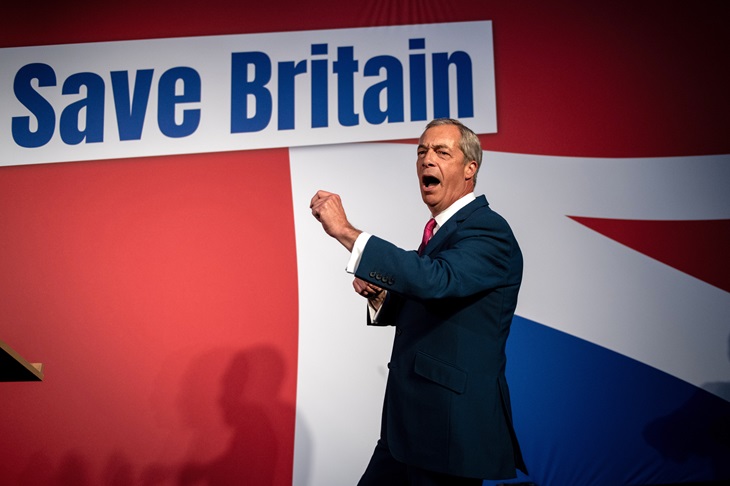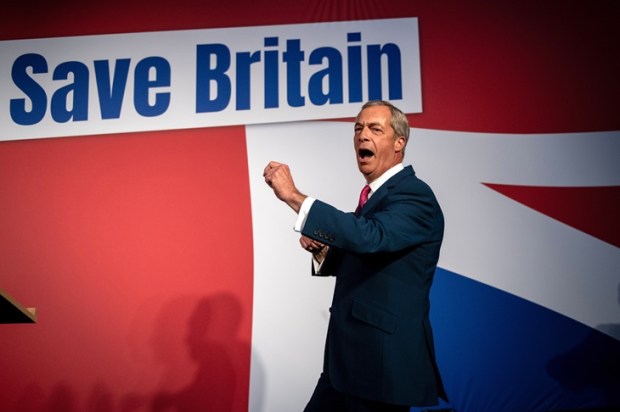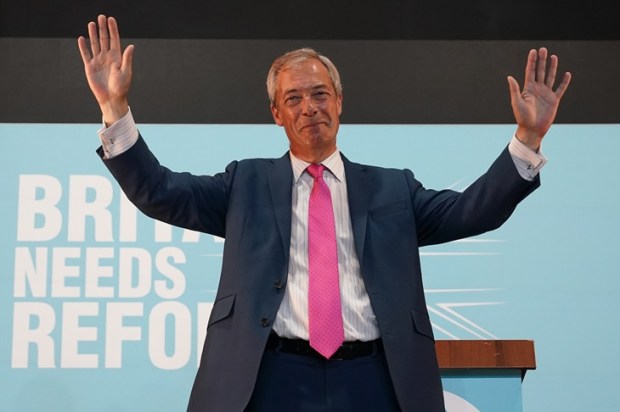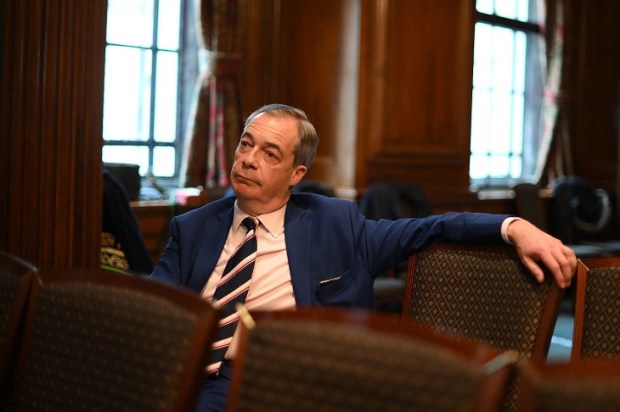Polling suggests Nigel Farage could win the seat of Clacton in Essex, should he decide to run.
Fuelling speculation about the potential political upper-cut, Farage, a Brexit architect and current honorary president of the UK Reform party, hasn’t ruled out the idea.
According to the Times, polling for Farage revealed the possibility of him ‘winning 37 per cent of the vote’ besting the current conservative-lite Tory party member by ‘ten percentage points’.
The survey was commissioned by Arron Banks, a key financial supporter of Brexit’s Leave campaign.
He is also – in the interest of the broader socio-political context – one of the Left’s most disliked British public figures.
In...
Already a subscriber? Log in
Subscribe for just $2 a week
Try a month of The Spectator Australia absolutely free and without commitment. Not only that but – if you choose to continue – you’ll pay just $2 a week for your first year.
- Unlimited access to spectator.com.au and app
- The weekly edition on the Spectator Australia app
- Spectator podcasts and newsletters
- Full access to spectator.co.uk


























Comments
Don't miss out
Join the conversation with other Spectator Australia readers. Subscribe to leave a comment.
SUBSCRIBEAlready a subscriber? Log in